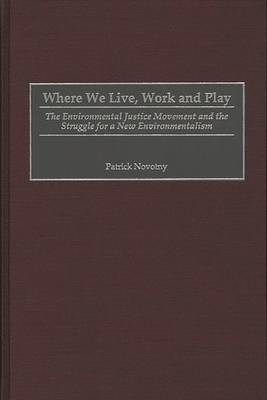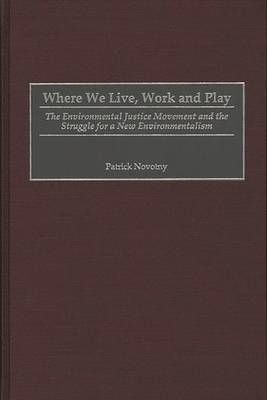
- Afhalen na 1 uur in een winkel met voorraad
- Gratis thuislevering in België
- Ruim aanbod met 7 miljoen producten
- Afhalen na 1 uur in een winkel met voorraad
- Gratis thuislevering in België
- Ruim aanbod met 7 miljoen producten
Where We Live, Work and Play
The Environmental Justice Movement and the Struggle for a New Environmentalism
Patrick NovotnyOmschrijving
Numerous studies have revealed that the poor disproportionately bear the burden of environmental problems in America today. Issues range from higher levels of poisonous wastes, carbon dioxide, and ozone, to greater than normal incidences of asthma and lead poisoning. The environmental justice movement, which has emerged in working class and low-income African American and Latino communities since the early 1990s, is an effort that is reinterpreting the definition of the environment as where we live, work, and play to connect new constituencies traditionally outside of the postwar environmental movement. Novotny documents this expanding constituency through case studies of four community groups ranging from South Central Los Angeles to Louisiana.
Environmental racism is understood as yet another type of discrimination which results in a high incidence of environmental concerns in poorer communities due to what many activists see as discriminatory land use practices, decisions by industry that intentionally locate hazardous wastes in these communities, and the uneven enforcement of environmental regulations by federal, state, and local officials. Community leaders have added environmental causes to their fight against unemployment, impoverishment, and substandard housing. This study explores various attempts to put a halt to illegal practices and to broaden public awareness of the issues involved.Specificaties
Betrokkenen
- Auteur(s):
- Uitgeverij:
Inhoud
- Aantal bladzijden:
- 136
- Taal:
- Engels
- Reeks:
Eigenschappen
- Productcode (EAN):
- 9780275960261
- Verschijningsdatum:
- 30/08/2000
- Uitvoering:
- Hardcover
- Formaat:
- Genaaid
- Afmetingen:
- 162 mm x 244 mm
- Gewicht:
- 399 g

Alleen bij Standaard Boekhandel
Beoordelingen
We publiceren alleen reviews die voldoen aan de voorwaarden voor reviews. Bekijk onze voorwaarden voor reviews.












